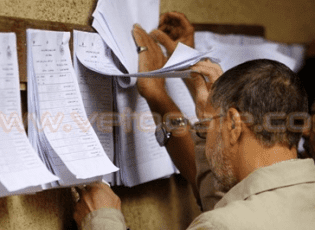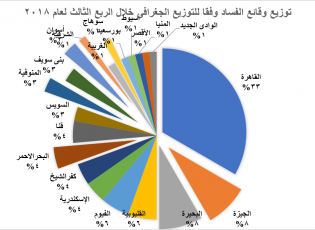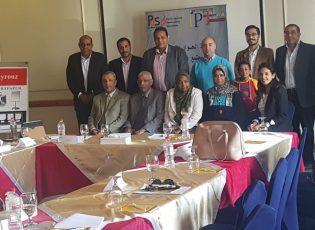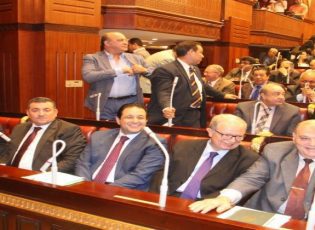Vito: Saturday 31 December 2016 - 01:24 PM
* What are your expectations for corruption rates in Egypt for the year 2017? Are the indicators heading towards low or high rates?
Indicators indicate that corruption rates will continue to rise in the new year. This is because the justifications and causes that result from corruption in all its forms still exist, in light of the current economic conditions that are not followed by social protection measures, and therefore it is expected that the smaller forms of corruption represented in bribery and others will increase and spread.
* What are the obstacles facing regulatory bodies to positively confront corruption?
Combating corruption requires a set of regulatory institutions, and unfortunately these institutions in Egypt lack independence, and most of them are subordinate to the executive authority, and their regulatory frameworks have not changed according to the developments that have occurred in society, and many of them lack competence, even the institutions that persistently strive to fight corruption, the effort in which is individual, For example, the Administrative Control Authority is making a real effort in combating corruption, but it faces administrative problems, as the numbers of its employees are much less than the tasks assigned to it, as well as the coordination between these institutions, in addition to the inadequacy of the laws governing its work, but it is subject to many restrictions.
* Are laws alone able to confront and reduce corruption?
The state, through its legislative and executive institutions, has a legislative package and strong measures towards fighting corruption, and we need new laws to reduce corruption rates now and immediately.
* Can the civil service law be included in the anti-corruption laws, especially since the adopters of the law were committed to this?
It is wrong for those who claim that the Civil Service Law will help reduce rates of administrative corruption within state institutions. It is a much weaker legislation that eliminates corruption. Rather, it maintains centralization in recruitment.
Short link: https://pfort.org/en/?p=1954













